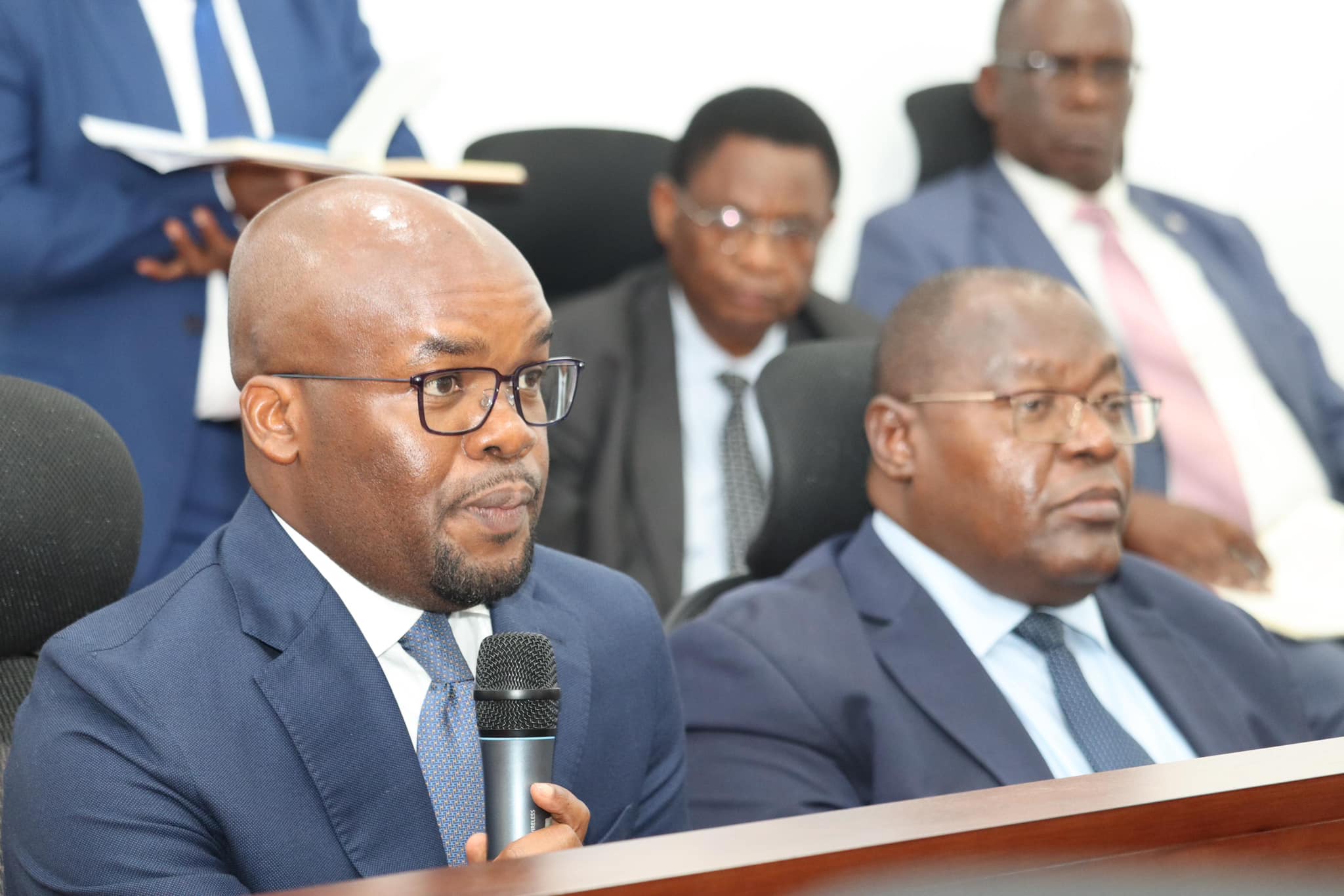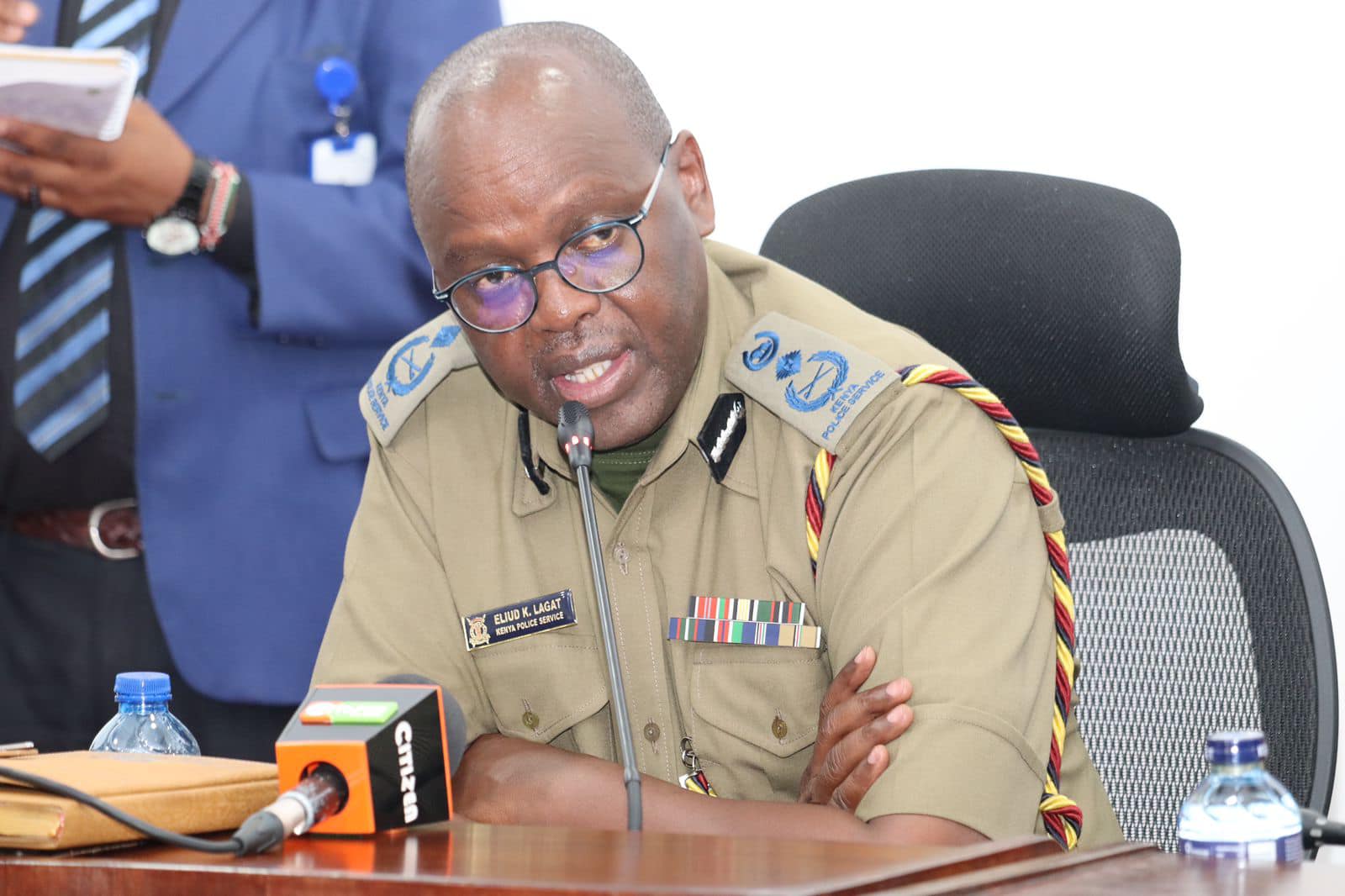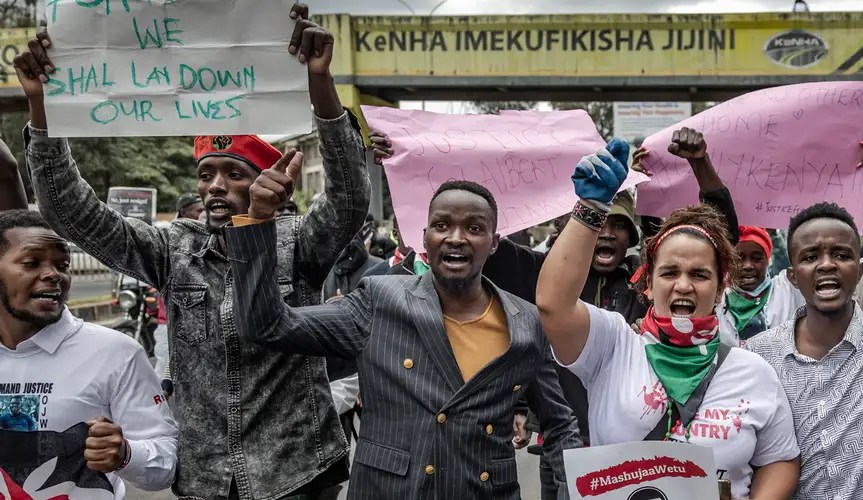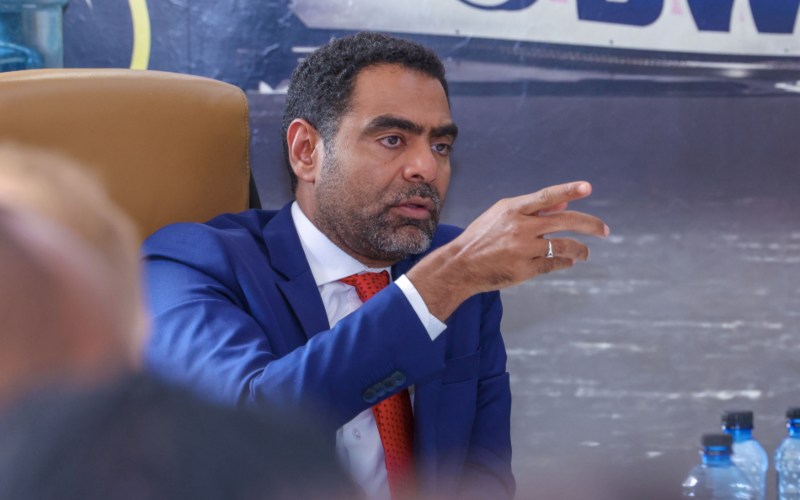Sh106 billion needed for police salary reforms, Interior PS Omollo says

Omollo noted that the comprehensive reform plan would require Sh184 billion when factoring in these internal resources.
The Kenyan government is seeking Sh106 billion to implement crucial reforms in the police service, including salary adjustments and improved remuneration, as outlined in the Maraga Taskforce Report.
This report, led by former Chief Justice David Maraga, was presented to President William Ruto in October last year and includes 1,007 recommendations aimed at transforming the National Police Service (NPS), Kenya Prisons Service (KPS), and National Youth Service (NYS).
More To Read
- Police crack down on syndicate forging IDs and title deeds, arrest 29
- Kenya, UK celebrate success of Sh3.6 billion REINVENT security programme after seven years
- IG reshuffles top police ranks as six senior officers moved
- IEBC blames police officers for by-election violence, maintains poll largely successful
- Seven arrested over Kariobangi North church chaos as police pursue more suspects
- Wajir police nab suspect with AK-47 rifle in ongoing crackdown on illegal firearms
During a meeting with the National Assembly Departmental Committee on Administration and Internal Security on Thursday, Interior Principal Secretary Raymond Omollo explained the need for substantial funding to realise these reforms.
"New money is required to implement recommendations touching on salaries and allowances," he stated, explaining that while some recommendations can be met through internal budget allocations, an additional Sh106 billion is essential.
The proposed salary structure will be implemented in three phases, beginning on July 1, 2024, following consultations with the National Treasury, the Salaries and Remuneration Commission (SRC), and the Public Service Commission (PSC).
Omollo noted that the comprehensive reform plan would require Sh184 billion when factoring in these internal resources.
He outlined that the implementation process will unfold over four stages: immediate, short-term, medium-term, and long-term.
 National Police Service Commission Chairperson Eliud Kinuthia when he appeared before the National Assembly’s Departmental Committee on Administration on October 31, 2024. (Photo: Parliament)
National Police Service Commission Chairperson Eliud Kinuthia when he appeared before the National Assembly’s Departmental Committee on Administration on October 31, 2024. (Photo: Parliament)
Priority areas for these reforms include officer welfare, legislative reviews, training curriculum updates, and modernisation of equipment and infrastructure.
In the same committee, Eliud Kinuthia, the chairperson of the National Police Service Commission (NPSC), also provided an update on the progress of the reforms.
He reported recent achievements, such as salary reviews and promotions for nearly 2,000 police constables with exemplary records.
Kinuthia welcomed proposed amendments to the NPSC Act aimed at improving operational efficiency and removing mandatory quorum attendance requirements.
Despite these advancements, both Omollo and Kinuthia acknowledged ongoing challenges, particularly financial constraints and resistance to organisational culture change within the police force.
"Implementing the recommendations of the Maraga Taskforce Report has encountered several challenges, leading to partial implementation affecting overall progress," Omollo admitted.
Lawmakers expressed the urgency for the full implementation of the taskforce's recommendations, saying that the public expects tangible results this time around.
"Kenyans want this report implemented to the letter. Four other reports have been made, and nothing has come out of them. This time, we don't want this one to suffer the same fate," they said.
Top Stories Today












































